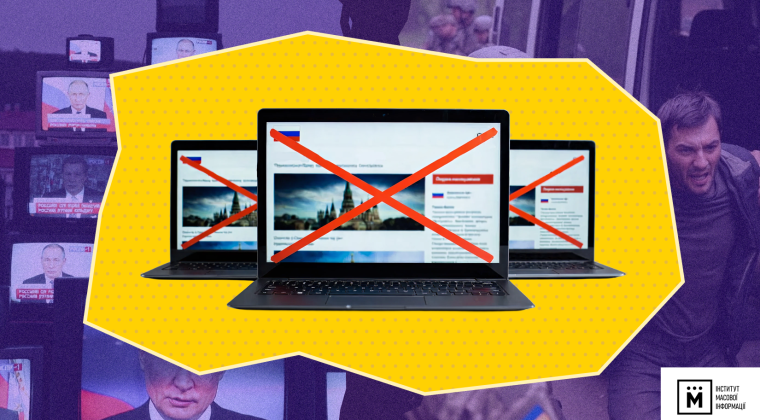53% of IMI women journalists surveyed said they had been sexually harassed in the aspect of their professional activities. 47% of women journalists said that they did not face any harassment while performing their professional activity or due to it. These are the findings of an anonymous target-focused survey of media professionals conducted by the Institute of Mass Information in cooperation with the NGO “Women in Mass Media” and with investigative journalist Lyubov Velychko on June 14-25, 2021 *.
At the same time, 17% of male journalists surveyed indicated that they had suffered sexual harassment due to their professional activities. At the same time, 83% of male journalists who took part in the survey did not have such experience.
In addition, 33% of respondents said that they had witnessed sexual harassment of their colleagues in connection with journalistic activities.

Circumstances, geography and types of harrassment
To the question “Where exactly have you personally experienced sexual harassment or noticed sexual harassment of others?” 30% of all respondents indicated that this happened during interviews with people in power (officials, businessmen). In second place, these were the facts of harassment in the editorial office, from colleagues, management or employer (25% of respondents mentioned this). And in third place there were facts of harassment while working on an editorial task (22% of respondents). Such results indicate a fairly high level of risk and low security of media not only outside the editorial office, but also in editorial teams.
Survey female participants told IMI anonymously about sexual harassment while practicing journalism. The vast majority of these stories were harassment of women journalists by men: government officials, officials, MPs, businessmen, and less harassment by media owners and newsroom managers. Among the examples, on condition of anonymity the respondents mentioned the following:
- “Offer to come to the speaker’s house in the evening and have dinner to get to know each other better and arrange an interview”
- “The superior constantly appointed” working “meetings in non-working places. If you do not come, you get on the wrong side of your chief and get fined. The end of the chapter was a “RDV” in someone else’s rented apartment. I did not come in and was fired. “
- “A man in a managerial position demanded that I wear low neck dresses and short skirts to work, because he really likes my breasts.”
- “The manager applied harassment techniques to me. When he realized that nothing would happen, he stopped it and various hints also. “
- “Obscene proposals, based only on the fact that I work in the news, and this is” the oldest profession, like a prostitute. Don’t you think that the correspondent is equal to a prostitute. “
- “At official events, in broad daylight, the same official tried to touch me. First by stroking the hand in which I held my Dictaphone. At the next event, to get through the crowd of colleagues, he hugged tightly my waist. I got out and ran out of the room where the event was taking place. ”
- “An attractive” vacation offer at his expense and more “
- “The official called him to his office to speak on the matter, but instead he pressed me against the wall and began to feel me up. I fled. ”
- “During the interview, the official stood (…) and looked into the neckline of my sweater. And when I was about to leave and started wearing a coat, he decided to help me put on my coat under the pretext of being a gentleman. And at the same time he managed to slap me on the buttocks from behind ”
- “From the official with whom I communicated on my subject, he spoke about how he goes to the bath (I called to agree on the place, time and day of the comment).”
- “From the official stories about my” beautiful face “,” attractive voice “, invitation to take a cup of tea in an informal setting.”
- “Verbal outbursts like she is a ‘good journalist, we need to give her information,’ fat smiles and eye-popping during interviews, hugging the waist.”
- “I had a negative experience from the guests of the editorial office, the high-ranking officials. A colleague protected me from obscenity. The police then hinted that it was better to remain silent.”
Regarding the geography of harassment, more than a third of the respondents who indicated that they had been sexually harassed were residents of the western regions (37%), followed by the central regions of Ukraine (33%). The less incidents occurred to the media professionals from the south (16% of all respondents who were sexually harassed) and eastern Ukraine (11%). Another 3% of respondents did not indicate their region.
Regarding the types of sexual harassment, female and male journalists most often have been encountering harassment, which manifested itself in the form of jokes and humiliation related to sexuality (28% of respondents) as well as unwanted touch, groping, and other physical contact (indicated by 27% of respondents).
Another 25% of respondents indicated that they had a negative experience in the form of offers of a sexual nature from the persons on whom the respondents were dependent from (25%).
6% of respondents were sexually harassed, including through the Internet, and another 3% were harassed as “tit for tat” **.
Reaction to sexual harassment
Most often in such cases, journalists report it to one’s friends or relatives (49% of respondents) or colleagues (47% of those who have been sexually harassed). Only 4% of respondents dared to write about their experience publicly on social networks or tell in the media **.
A quarter of journalists interrogated by IMI said they said they did not report it to anyone (25%). The main reason for the silence about such incidents was the lack of mechanisms to protect the rights of victims, because “it will still no help” (this was said by 16% of those who were sexually harassed). In second place, it was due to fear that no one will believe, because the victims had no evidence (7% of respondents). Another 6% indicated that they feared condemnation and misunderstanding from colleagues **.
The vast majority of respondents (93%) found that the perpetrators of sexual harassment are those who did not respect the personal boundaries of others.
Understanding protection against sexual harassment
According to the interviewed journalists, the most effective protection against sexual harassment at work is personal understanding and planning one’s own risks, according to 63% of respondents. Among the most powerful tools of protection, journalists also mentioned publicity on social networks (45% of respondents). In third place, they found it was important to complain to the police (40%).
Almost a third of journalists surveyed (33%) believe that their employer should protect them, and another 32% rely on help from colleagues. Further, 31% of respondents believe that training and education will help protect them, and 21% see the role of advocates in NGOs. Only 4% believe that no additional protection is needed.
* The survey was conducted using an anonymous targeted online survey using an interactive structured questionnaire. References to the questionnaire were sent to potential respondents – working journalists and editors. A total of 138 responses were received from the media. 93% are respondents from the regions of Ukraine, 7% from the city of Kyiv. 83% of women, 17% of men The study was conducted during June 14-25, 2021 .
** The totality of the answers is not equal to 100%, because the respondents could choose several answers
This study was made possible with the support of the International Renaissance Foundation within the project “Mobilization of efforts to address challenges in the media sphere of Ukraine.” The material reflects the position of the authors and does not necessarily coincide with the position of the International Renaissance Foundation.



